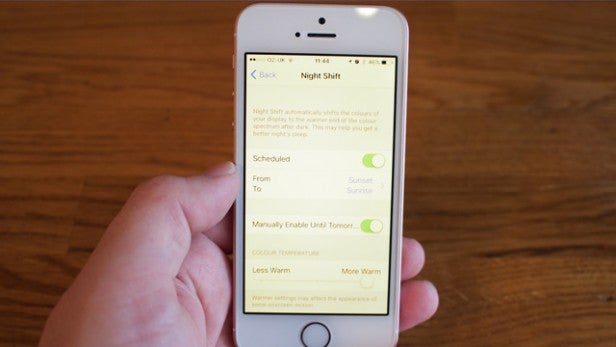New research suggests Night Mode could actually be keeping you awake

According to research from the University of Manchester, blue light may not be disrupting our shut eye, but the warm hues found in night mode could be ruining your sleep.
Most night modes work by placing a yellow filter over our screen. This is due to our body clocks being very sensitive to short wave photons – aka blue light – so designers were attempting to find a way for users to avoid this just before their bedtime.
However, researchers in Manchester have argued that colour perception also plays a role in body clock function – and perhaps a more important one too.
Related: Here are the most popular apps with dark mode
The team carried out its research on mice, so it might not fully translate to human biology, but it does give us a new insight into how our body clock could react to different types of light.
Using specially designed lighting, the team tested out the effects of equally bright blue and yellow lighting on the mice. They found that yellow lighting was much more likely to have a strong effect on their circadian rhythms. So by extension, scrolling through your phone when it’s tinged with yellow might not be good for your sleep patterns.
Related: Spotify’s sleep timer is now on iPhones
“Our findings suggest that using dim, cooler, lights in the evening and bright warmer lights in the day may be more beneficial,” says Dr Tim Brown of Manchester University.
“Research has already provided evidence that aligning our body clocks with our social and work schedules can be good for our health. Using colour appropriately could be a way to help us better achieve that.”
If you’re looking to improve your sleeping habits, you might want to think twice about switching on night mode just before you hit the hay.


